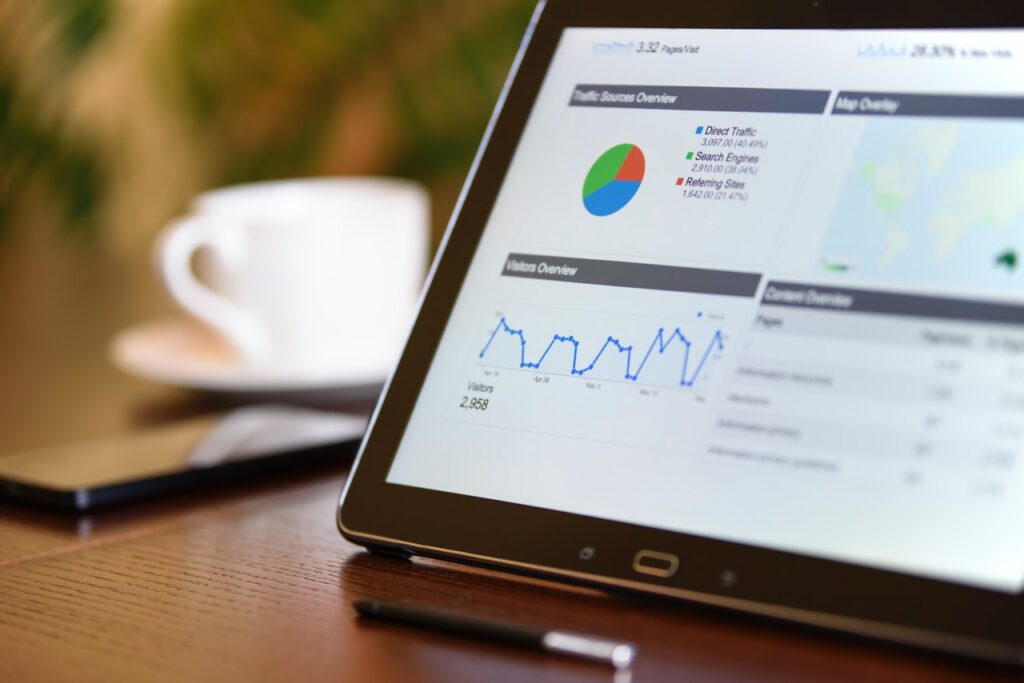Why E-Commerce Businesses Can’t Afford to Ignore Analytics
Written by: Camille Magpantay Read time 5 minutes
As an e-commerce business, you know that data is essential to your success. You need to track website visits, monitor shopping behavior, and gather feedback in order to make informed decisions about your business. But all too often, e-commerce businesses ignore analytics in favor of more “glamorous” marketing tasks.

Ignoring analytics is a big mistake because analytics is the key to understanding what’s working and what isn’t in your marketing campaigns, and they can help you optimize your website for better sales. In this blog post, we’ll discuss the importance of analytics for e-commerce businesses and explain how you can use them to improve your bottom line.
The importance of analytics for e-commerce businesses
Firstly, E-commerce businesses need to track a lot of data in order to be successful which includes website visits, shopping behavior, customer feedback, and more. Because without this data, it would be very difficult to make informed decisions about your business. However, all too often, e-commerce businesses ignore analytics in favor of more “glamorous” marketing tasks. This can be a big mistake because analytics is the key to understanding what’s working and what isn’t in your marketing campaigns, and they can help you optimize your website for better sales.
How to use analytics to improve your business
There are a number of ways that you can use analytics to improve your e-commerce business. For example:
Track which pages are getting the most traffic
Leverage website analytics to track which pages on your site are getting the most traffic. Doing this will help you determine which areas of your site are most popular with customers. As a result, you can make sure that these pages are optimized for conversion.
Track consumer behavior
Use shopping behavior data to understand what products are most popular with your customers. By measuring these insights you can make sure that you’re stocking the right products and promoting the right offers.
Track customer feedback
Use customer feedback data to understand what people think about your business. This can help you identify areas where you need to make improvements and ensure that you’re delivering the best possible customer experience.
Social media management
Use social media analytics to track which social media channels are generating the most traffic and engagement. This helps you track which posts get the most likes and shares in Facebook or Instagram, or which videos you have posted in YouTube or TikTok are the most engaging. This information can help you determine where you should focus your marketing efforts.
The benefits of using analytics
There are many benefits of using analytics to improve your e-commerce business. For example:
Improved decision making
Data can help you make informed decisions about your business. This can lead to better use of your marketing budget and more effective marketing campaigns.
Increased sales
By understanding what’s working and what isn’t in your marketing campaigns, you can optimize your website for better sales.
Improved customer experience
By understanding what people think of your business, you can identify areas where you need to make improvements and ensure that you’re delivering the best possible customer experience.
Improved website performance
Analytics can help you track how well your website is performing and identify areas where you need to make changes.
The different types of analytics tools available
There are a number of different types of analytics tools available, each with its own advantages and disadvantages. Here are some of the most common types:
Website analytics
This type of analytics tracks data about website visits, including which pages are getting the most traffic and how long people are spending on your site. It can also be used to track conversions and other important metrics.
Shopping behavior analytics
Shopping behavior data tracks data about customer shopping behavior, including what products are most popular and how much customers are spending.
Customer feedback analytics
Customer feedback data tracks data about customer feedback, including what people think of your business and which areas need improvement.
Social media analytics
This type of analytics tracks data about social media activity, including how much traffic each channel is generating and which posts are getting the most engagement.
Web traffic analytics
Web traffic analytics tracks data about website visitors, such as where they’re coming from and what search terms they used to find your site.
Analytics Tools for e-Commerce Businesses (Paid and Free)
There are a number of different analytics tools available for e-commerce businesses, both paid and free. Here are some of the most popular:
Google Analytics
Google Analytics is one of the most popular tools and it’s free to use. It tracks data about website visits, including which pages are getting the most traffic and how long people are spending on your site. It can also be used to track conversions and other important metrics.
KISSmetrics
KISSmetrics is a paid analytics tool that starts at $299/year. It lets you see your key metrics at a glance such as total sales and revenue, average revenue per person, new visitors, Visitor to Purchase conversion rate, Cart to Purchase conversion rate, and site searches.
Mixpanel
Mixpanel is a paid tool that starts at $25/month. It tracks users at different engagement stages and group them into cohorts such as new, resurrected, dormant, or retained.
Customer.io
Customer.io is a paid analytics tool that starts at $150/month. It tracks data about customer feedback, such as what people think of your business and which areas need improvement.
Hootsuite Insights
Hootsuite is a paid analytics tool that starts at $49/month. It tracks data about social media activity, such as how much traffic each channel is generating and which posts are getting the most engagement.
Clicky
Clicky is a free analytics tool that tracks data about website visitors, such as where website visitors coming from and what search terms they used to find your site.
The future of analytics and its impact on e-commerce businesses
Analytics is constantly evolving and there are always new tools and features being added. As analytics becomes more sophisticated, it will become even more important for e-commerce businesses to use it to stay ahead of the competition.
From understanding what’s popular on your website to understanding how customers interact with your brand, analytics is an essential tool for e-commerce businesses. For example, here are a few of the ways that analytics can help you improve your business:
- Track website conversions and see which pages are most effective in converting visitors into customers.
- Identify which products are most popular and see how they’re performing compared to other products.
- Understand which social media channels are generating the most traffic and what type of content is getting the most engagement.
- Track customer feedback and see where people are having the best experiences with your brand, as well as where they’re having negative experiences.
- Identify which search terms are bringing traffic to your site and optimize your content for those terms.
- Use analytics to understand how customers are interacting with your website and make changes based on that data.
Conclusion
The bottom line is that e-commerce businesses simply cannot afford to ignore analytics. However, by using the right tools, you can gain valuable insights into your business that will help you improve your bottom line.
Are you ready to take your e-commerce business to the next level? Start using analytics today!
AUTHOR BIO:

As a PR Outreach Specialist, Camille uses her skills in influencer research, content writing, and digital marketing to build relationships with brand leaders. She is dedicated to empowering the world to tell its full story.
Leave a comment